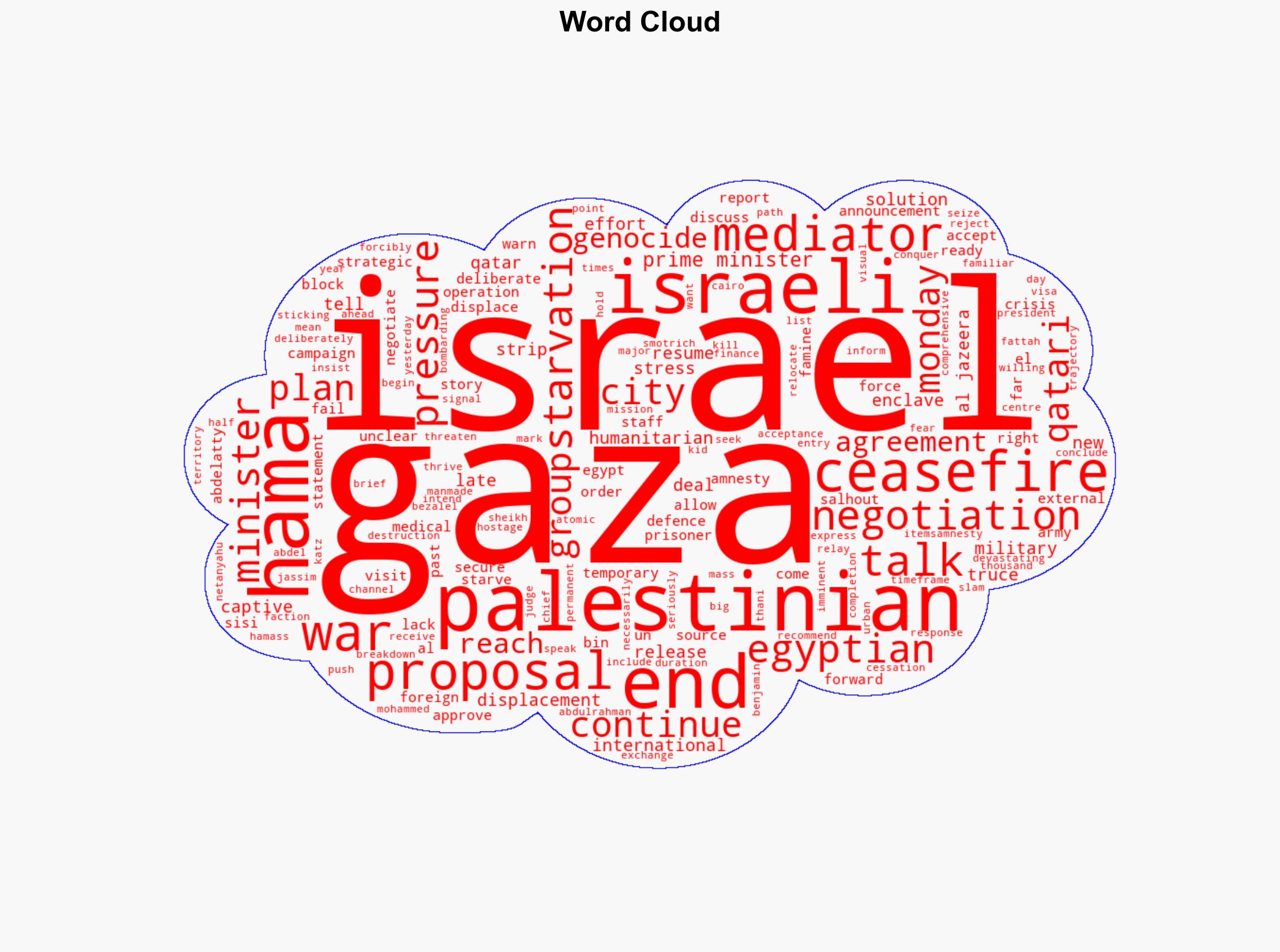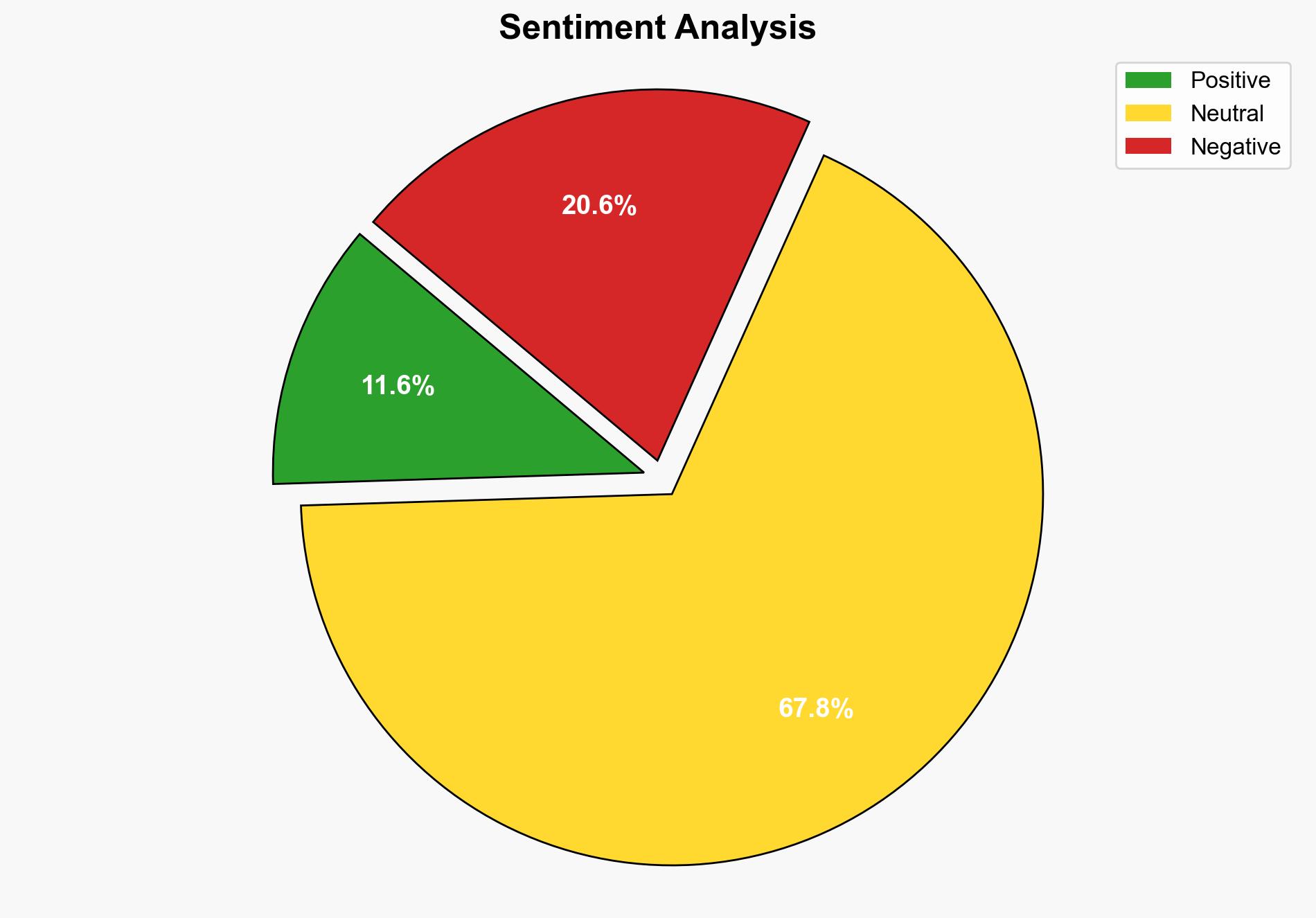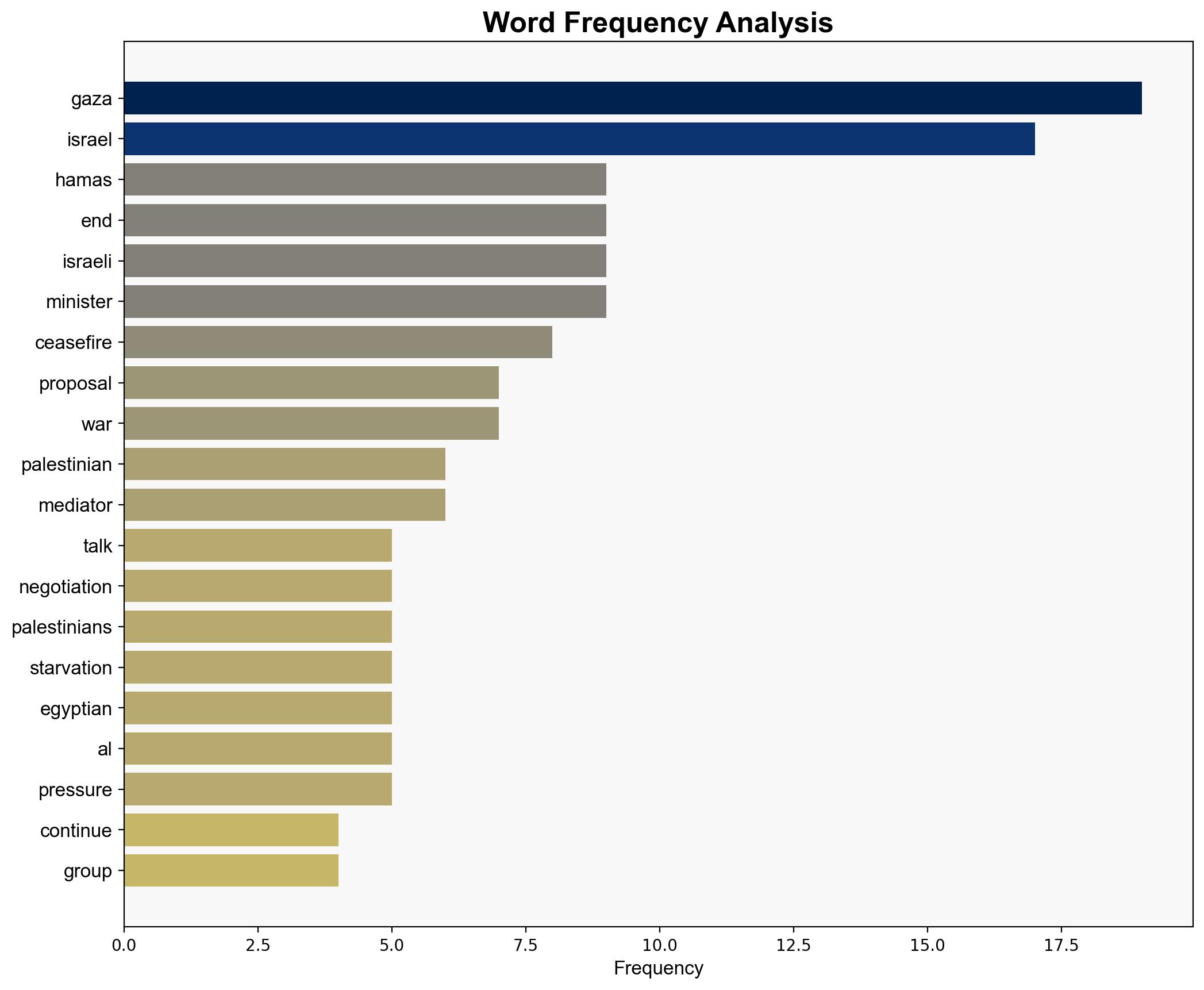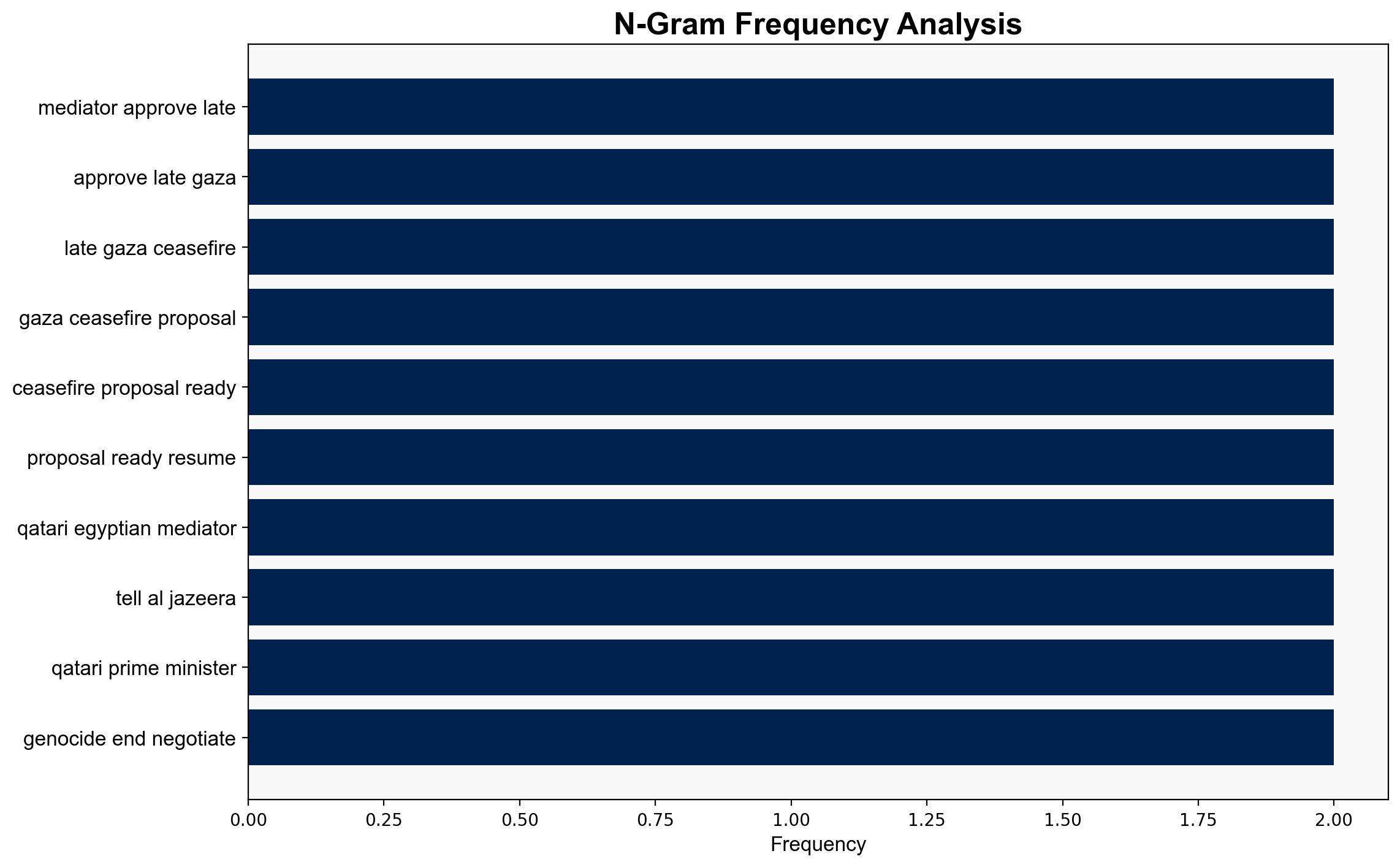Qatari PM Egyptian president back efforts to reach Gaza ceasefire – Al Jazeera English
Published on: 2025-08-18
Intelligence Report: Qatari PM Egyptian president back efforts to reach Gaza ceasefire – Al Jazeera English
1. BLUF (Bottom Line Up Front)
The most supported hypothesis is that the current ceasefire proposal, backed by Qatar and Egypt, is unlikely to result in a long-term cessation of hostilities due to fundamental disagreements between Hamas and Israel. Confidence Level: Moderate. Recommended action is to support diplomatic efforts while preparing for potential escalation.
2. Competing Hypotheses
1. **Hypothesis A**: The Qatari and Egyptian-backed ceasefire proposal will lead to a temporary truce, allowing humanitarian aid into Gaza and a prisoner exchange, but will not resolve underlying tensions.
– **Supporting Evidence**: Historical patterns of temporary ceasefires; current acceptance by Hamas; involvement of influential mediators like Qatar and Egypt.
– **Contradictory Evidence**: Israel’s insistence on a temporary truce to continue military objectives; past failures of ceasefire agreements.
2. **Hypothesis B**: The ceasefire proposal will fail to materialize into any form of truce, leading to continued or escalated conflict.
– **Supporting Evidence**: Israel’s strategic objectives in Gaza; internal Israeli opposition to ceasefire; historical precedent of failed negotiations.
– **Contradictory Evidence**: Diplomatic pressure from Qatar and Egypt; Hamas’s current acceptance of the proposal.
3. Key Assumptions and Red Flags
– **Assumptions**: Both parties are negotiating in good faith; external mediators can influence outcomes; humanitarian concerns will pressure parties into a truce.
– **Red Flags**: Israel’s military objectives may override diplomatic efforts; Hamas’s acceptance may be a strategic delay; internal political dynamics in Israel could derail negotiations.
– **Blind Spots**: Potential influence of other regional actors not mentioned; impact of international community’s response.
4. Implications and Strategic Risks
– **Implications**: Temporary truce could provide short-term relief but may not prevent future conflicts. Failure to reach an agreement could exacerbate humanitarian crises and increase regional instability.
– **Strategic Risks**: Escalation of military conflict; increased displacement and humanitarian suffering; potential for broader regional involvement.
5. Recommendations and Outlook
- Support ongoing diplomatic efforts by Qatar and Egypt to mediate a ceasefire.
- Prepare contingency plans for humanitarian aid delivery in case of continued conflict.
- Monitor internal political developments in Israel and Hamas for shifts in negotiation stances.
- Scenario Projections:
- **Best Case**: Successful temporary truce leading to longer-term negotiations.
- **Worst Case**: Breakdown of talks leading to full-scale military escalation.
- **Most Likely**: Short-term truce with eventual resumption of hostilities.
6. Key Individuals and Entities
– Sheikh Mohammed bin Abdulrahman bin Jassim Al Thani
– Abdel Fattah el-Sisi
– Benjamin Netanyahu
– Bezalel Smotrich
– Israel Katz
7. Thematic Tags
national security threats, regional focus, conflict resolution, humanitarian crisis




